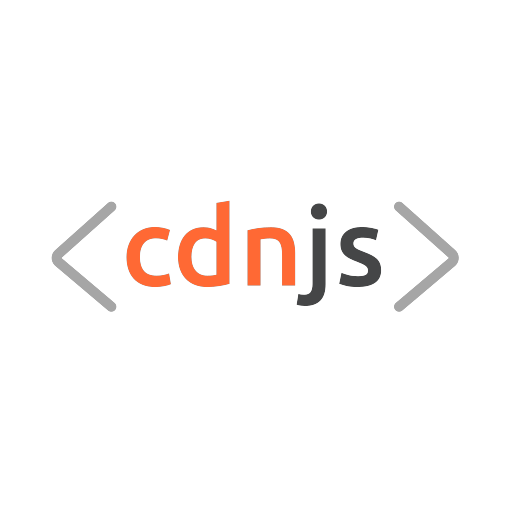The #1 free and open source CDN built to make life easier for developers.
cdnjs API Server
Looking for the documentation on our API?
Getting Started
This project runs on Node.js. Please make sure you have a version installed that matches our defined requirement in the .nvmrc file for this project.
Included with this project is a dependency lock file. This is used to ensure that all installations of the project are using the same version of dependencies for consistency.
You can install the Node dependencies following this lock file by running:
npm ciOnce the dependencies are installed, you need to get a copy of all the data that the API server requires to run. This can be done by running:
npm run buildWith the data fetched, the API server is ready to run in development mode. To start the server in development mode, run:
npm run devUpdating Data
To update your data, you can simply run npm run build again, which will update the tutorial repo
clone originally created by this script.
Once you have updated your data locally, you will need to restart the development server for it to
pick up the new data. In production, the app includes its own update job that runs every ten
minutes, calling the same logic as npm run build and then loading that data into memory.
The npm run build script performs the following task, via
update/worker.js:
- Cloning or updating the git-based data for tutorials, via
bin/cloneUpdateData.sh- Clone or update tutorials
- If tutorials git repo already exists locally, update it from origin
- Else, clone the latest tutorials from cdnjs/tutorials
- Then, always, log the tutorials commit that was cloned
- Then, always, save the last modified and created at info for the tutorials to
data/tutorialsModified.txtanddata/tutorialsCreated.txtrespectively
- Clone or update tutorials
Error Logging
We make use of Sentry to handle our error logging. To enable Sentry in the API server, set the
SENTRY_DSN environment variable to a valid DSN URL from Sentry.
Alongside the normal error catching that Sentry provides in Node.js & Express, we also fire out custom error events for certain issues:
Missing SRI entryis fired if there is no SRI hash for a fileBad entry in Algolia datais fired if an entry in Algolia is falsey, or if its name is falseyBad entry in packages datais fired if a package is falsey, or if itsname/versionis falsey
Production Deployment
To deploy this API server to production, it should be as simple as cloning this repository, running
npm run build to fetch the initial data for the server and then running npm run start.
To change the port that the app binds to, set the PORT environment var when running the script.
For our Heroku deployment, this is set automatically by Heroku.
Removing submodules and then cloning the respective repositories is used to update data for production deployments due to how Heroku sets up the app, with the final app directory not being an initialised Git repo.
Testing and Linting
Our full set of tests (linting & test suite) can be run at any time with:
npm testYou can also run the tests with their own API server running in development mode using:
npm run test:with-serverNote, as this starts an instance of the API server, data for it must be available. This can be done
by running npm run build, before starting the server/tests.
(This is what the CI in this repository uses for every commit).
Linting
Included in this repository are an eslint config file as well as an editorconfig file to help with ensuring a consistent style in the codebase for the API server.
To help enforce this, we use both eslint and echint in our testing. To run eslint at any time, which checks the code style of any JavaScript, you can use:
npm run test:eslinteslint also provides automatic fixing capabilities, these can be run against the codebase with:
npm run test:eslint:fixThe more generic rules defined in the editorconfig file apply to all files in the repository and this is enforced by echint, which can be run at any time with:
npm run test:echintTesting
This project uses Mocha and Chai (http) to test the API server. The tests attempt to validate every route on the API to ensure that no breaking changes have been made, though there is no promise that this is perfect, a human should always review changes!
The mocha test suite can be run at any time with the following command, assuming that the API server
is running locally on port 5050 (or on the port defined with the environment variable PORT):
npm run test:mochaYou can also start the mocha test suite with a dedicated API server running in development mode on
port 5050 (or on the port defined with the environment variable PORT) by running:
npm run test:mocha:with-server
